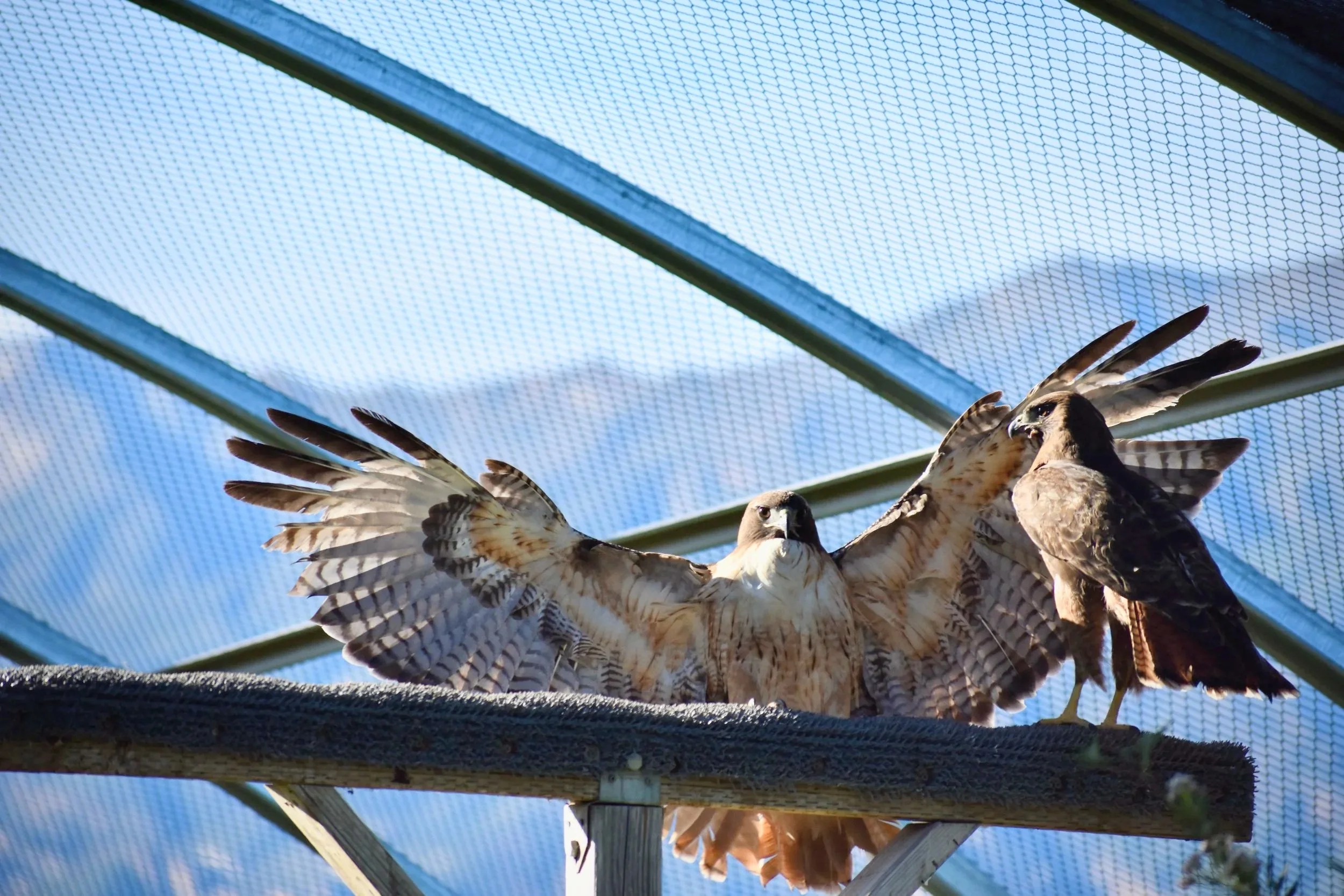
Raptors and the Law
Raptors (and other birds and wildlife) are protected by various state and federal laws.
Ojai Raptor Center is permitted by both the United States Fish and Wildlife Service (USFW) as well as the California Department of Fish and Wildlife, and we follow all laws strictly.
U.S. Fish and Wildlife Service (USFW)
USFW Wildlife Rehabilitation Euthanasia Law
(50 CFR 21.31 of federal regulations).
eCFR — Code of Federal Regulations
You must euthanize any bird that cannot feed itself, perch upright, or ambulate without inflicting additional injuries to itself where medical and/or rehabilitative care will not reverse such conditions. You must euthanize any bird that is completely blind, and any bird that has sustained injuries that would require amputation of a leg, a foot, or a wing at the elbow or above (humero-ulnar joint) rather than performing such surgery, unless:
(A) A licensed veterinarian submits a written recommendation that the bird should be kept alive, including an analysis of why the bird is not expected to experience the injuries and/or ailments that typically occur in birds with these injuries and a commitment (from the veterinarian) to provide medical care for the bird for the duration of its life, including complete examinations at least once a year;
(B) A placement is available for the bird with a person or facility authorized to possess it, where it will receive the veterinary care described in paragraph (e)(4)(iii)(A) of this section; and
(C) The issuing office specifically authorizes continued possession, medical treatment, and rehabilitative care of the bird.
On Possession of Live Raptors, Eggs, Feathers, Nests and Unpermitted Rehabilitation
"The Migratory Bird Treaty Act makes it illegal for anyone to take, possess, import, export, transport, sell, purchase, barter, or offer for sale, purchase, or barter, any migratory bird, or the parts, nests, or eggs of such a bird except under the terms of a valid permit issued pursuant to Federal regulations."
48 Hours Law
In the state of CA you have 48 hours to get native birds to a licensed rehabilitation facility. It is not legal to try and care for them yourself.
per USFW "Under the MBTA it is illegal to destroy a nest that has eggs or chicks in it or if there are young birds that are still dependent on the nest for survival. It is also illegal for anyone to keep a nest they take out of a tree or find on the ground unless they have a permit issued by the U.S. Fish and Wildlife Service (USFWS)."
per CDFW “Fish and Game Code Section 3503 Nest or Eggs- Take, Possess, Destroy; Exceptions. It is unlawful to take, possess, or needlessly destroy the nest or eggs of any bird, except as otherwise provided by this code or any regulation made pursuant thereto.”
On Depredation Permits:
"A federal depredation permit authorizes you to capture or kill birds to reduce damage caused by birds or to protect other interests such as human health and safety or personal property. A depredation permit is intended to provide short-term relief for bird damage until long-term, non-lethal measures can be implemented to eliminate or significantly reduce the problem."
On Violations:
"MBTA violations involving the taking, possession, transportation or other unlawful utilization of migratory birds including permit regulations are misdemeanors, punishable by a fine of up to $15,000 and/or up to six months imprisonment, and revocation of permits (if applicable). The sale or barter of migratory birds is a felony punishable by a fine of up to $250,000 (500,000 per organization) and/or up to two years in prison."
On Taxidermy:
In order to perform any sort of taxidermy, commercial or otherwise, you must have a federal permit. If you are attempting to mount a migratory bird for another party you must both have the requisite permits.
Please contact the proper authorities with any additional questions you might have regarding the legal protections for local raptors.
